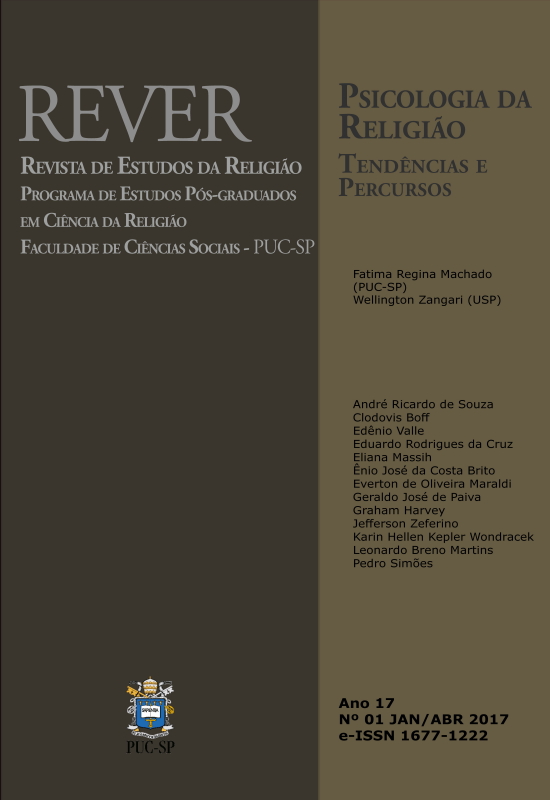Winnicott and his Religious Roots: A Biographical-Theoretical Excavation
DOI:
https://doi.org/10.23925/1677-1222.2017vol17i1a5Keywords:
Winnicott, Methodism, Psychoanalysis, Spontaneous gesture, Object usageAbstract
The text presents a bibliographical and biographical study of the religious roots of Donald Woods Winnicott, investigating the characteristics of his experience in the Wesleyan Methodist Church during his childhood, adolescence and youth. It seeks to identify influences of the Methodist doctrine in Winnicott’s understanding of human development, and the novelty of placing religiosity in the "transitional space". It also inquires about the influence of his psychoanalytic journey on his way of conceiving religiosity. In order to understand the transformations of religious heritage in Winnicott, his concepts of “creativity”, "spontaneous gesture" and "use of object" are used, pointing out the human need to singularize experience, to destroy and to recreate it. The text emphasizes the last years of his life and his approach to Christ, as expressed in conferences and poems. Winnicott brings a paradigm shift to understand the religious sentiment, and therefore the psychology of religion will be greatly enriched by the understanding of the path he followed.
Downloads
Published
How to Cite
Issue
Section
License
Authors who publish in this journal agree with the following terms:- Authors retain copyright, but grant the journal the right of first publication, with the work simultaneously licensed under the Creative Commons BY-NC License.
- Authors are authorized to assume additional contracts separately, for non-exclusive distribution of the work published in this journal (e.g., publishing in an institutional repository or as a book chapter), as long as with acknowledgment of authorship and first publication in this journal.


